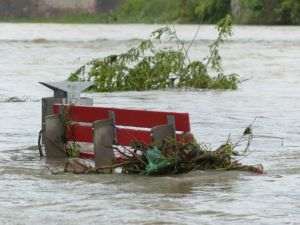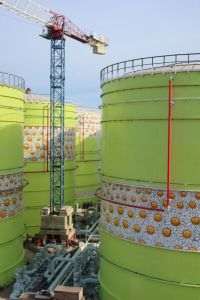• Penspen UK, accepted as a winner of the call for tenders
• Improved odds for AGRI, amid the issues encountered by Nabucco
The project company for the construction of AGRI (a pipeline for transporting natural gas over the Black Sea, on the Azerbaijan - Georgia - Romania - Hungary route) will begin the negotiations with the company which will accomplish the feasibility study.
Corneliu Condrea, a director in the Ministry of the Economy and member on the Board of Directors of AGRI, said: "At the call for tenders for the appointment of the company which will draft the feasibility study for AGRI, 12 offers were submitted of which three were selected. Following the submission of the firm bids by the three companies, the project company has appointed Penspen UK as a winner. Therefore, we begin the negotiations with it, for the signing of the final contract. If it all goes well and we sign the contract, Penspen will have 22 weeks to draft the feasibility study. If we do not reach an agreement with Penspen, we will then begin negotiations with the company which made the second best offer".
He said that the study will show whether the project is feasible and for what transport capacity. Most likely, the study will be ready in August-September 2012, even though the initial deadline had been set at Q2 2012. The delays in the implementation schedule were caused by the fact that the steps of the auction have to be approved by all the shareholders of AGRI (Azerbaijan, Georgia, Romania and Hungary), Corneliu Condrea said.
In case the project is feasible, the shareholders of AGRI will know the total amount of the investment and the participation quotas. This will be followed by the approval of the project and the decision of the shareholders concerning the final participation in the project.
The official of the Ministry of the Economy explained: "At the moment, the four countries own equal stakes in the project company. Each shareholder decides how much they will keep of that stake. The available shares will first of all be offered to the participating countries, and if no offers will be received, other investors will be attracted into the project as well".
So far, companies from Ukraine, Korea, Malaysia, Norway, Turkey, Bulgaria, Italy, Japan or Serbia have expressed their interest in the AGRI project.
Some energy market experts claim that AGRI will not be built without more investors joining in, because Azerbaijan and Georgia have no interest in maintaining their 25% stakes in the project. According to the experts, Azerbaijan is the only supplier of natural gas for AGRI and would have no interest in bearing 25% of the investment, but will instead limit itself to a far smaller percentage. Georgia doesn't have generous funding available for the project either, and it will settle for making money off the transit, the quoted sources state.
• The strong points of AGRI
AGRI (Azerbaijan - Georgia - Romania - Hungary Interconnector) is a pioneering project in the liquefied natural sector at the Black Sea, which is looking to exploit the natural resources of Azerbaijan, Georgia's position as a transit country, Romania's part in ensuring the direct access of natural gas from Azerbaijan to Europe, as well as Hungary's potential as a connection point between the natural gas market in Central Europe. The main strong points of the AGRI project are the fact that a significant part of the necessary infrastructure already exists, especially the Romania-Hungary Interconnector on the Arad-Szeged line, the flexibility involved by the LNG technology (Liquefied Natural Gas), the direct access of Azeri natural gas to the European market, and last but not least of all the political support expressed by all the four countries involved in the project.
The energy interconnection of the Caspian area with the European market involves the construction of two terminals (one for liquefaction and one for regasification) in Georgia and Romania, respectively. The locations of the two terminals will be established after the completion of the feasibility study.
The estimated costs of AGRI are 1.2 billion Euros for a transport capacity of 2 billion cubic meters, of 2.8 billion Euros for a capacity of 5 billion cubic meters and of 4.5 billion Euros for a capacity of 8 billion cubic meters.
• The problems in the implementation of Nabucco increase the chances of AGRI
Some energy specialists claim that the recent problems faced by Nabucco (a pipeline which is supposed to provide Western Europe with natural gas through Turkey, Bulgaria, Romania, Hungary and Austria) have considerably increased the odds of the AGRI gas pipeline being built. If Nabucco is faced with the uncertain stance of Turkey, which wants to drive a hard bargain in its negotiations with the European Union, AGRI now looks like a much safer and faster solution to diversify the energy sources. The countries involved in the project do not have any political disagreements and the completion deadline depends on how quickly investors can be attracted with significant resources, the quoted sources say.
Recently, the consortium which is building the Nabucco pipeline announced that it wants to shrink the project, which involved an investment of almost 8 billion Euros for a throughout of 31 billion cubic meters. But the uncertainties concerning the sources of gas of the Middle East have raised serious difficulties for the project. Nabucco's main supplier was supposed to be Iraq, followed by Azerbaijan, Turkmenistan and Egypt.
The smaller version of Nabucco includes just Bulgaria, Romania, Hungary and Austria. The project backed by the European Union is threatened by the plans for the Trans-Anatolian Pipeline (Tanap), which includes Turkey and is being developed by Socar (Azerbaidjan) and Botas (Turcia). Tanap may be a provider for Nabucco West (the name of the short version of Nabucco) or one of the rival projects such as South East Europe Pipeline (which supplies Austria through the Eastern side of Turkey).
The officials of Azerbaijan hinted that they would supply Europe through the first pipeline which will be built. Azerbaijan will therefore be able to drive a hard bargain itself when it comes to negotiating the transit terms and a price as good as possible for the gas which it will export to Europe.




























































